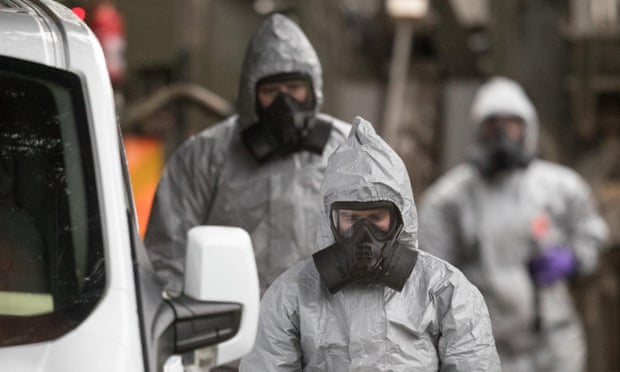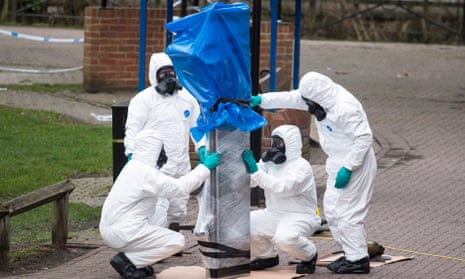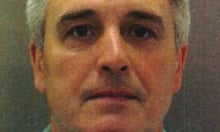A second police officer was poisoned in the Salisbury novichok attack, Scotland Yard has confirmed, after traces of the deadly nerve agent were discovered in a blood sample.
The poisoning of former Russian spy Sergei Skripal and his daughter Yulia, both of whom survived after fighting for their lives, also left a policeman critically ill after he searched their home.
Now counter-terrorism detectives investigating the attack, which is alleged to have been carried out by two Russian agents, have confirmed for the first time that another police officer was also poisoned during forensic testing at the UK’s top secret laboratory Porton Down.
Quick GuideWhat is novichok?
Show

Novichok refers to a group of nerve agents developed by the Soviet Union in the 1970s and 80s to elude international restrictions on chemical weapons. Like other nerve agents, they are organophosphate compounds, but the chemicals used to make them, and their final structures, are considered classified in the UK, the US and other countries.
The most potent of the novichok substances are considered to be more lethal than VX, the most deadly of the familiar nerve agents, which include sarin, tabun and soman.
Novichok agents work in a similar way, by massively over-stimulating muscles and glands. Treatment for novichok exposure would be the same as for other nerve agents, namely with atropine, diazepam and potentially drugs called oximes.
The chemical structures of novichok agents were made public in 2008 by Vil Mirzayanov, a former Russian scientist living in the US, but the structures have never been publicly confirmed. It is thought they can be made in different forms, including as a dust aerosol.
The novichoks are known as binary agents because they only become lethal after mixing two otherwise harmless components. According to Mirzayanov, they are 10 to 100 times more toxic than conventional nerve agents.
The officer from Wiltshire police, who does not want to be named, was involved in the response to the attack in March last year, but Metropolitan police refused to say what role they played.
The officer “displayed signs at the time” of exposure to a “very small amount” of the nerve agent and returned to work shortly afterwards following medical treatment.
It brings the number of confirmed victims of the initial attack to four, and the total number of victims of novichok exposure to six.
Dawn Sturgess, 44, died months after the attack, after spraying on her the liquid found in a discarded perfume bottle her partner Charlie Rowley came across and which was used to carry the military-grade nerve agent. Rowley, who fell ill too but survived, said he gave the bottle to Sturgess as a gift.
Counter-terrorism officers have also contacted a small number of people whose blood samples were taken at the time of the attack to seek their permission for forensic testing, the Met said.
The Guardian disclosed last month that a number of paramedics present at the Salisbury incident have reported feeling ill. The Met refused to confirm whether paramedics were among those whose permission was being sought for testing.
The Russian agents suspected of carrying the attack – known under the aliases Alexander Petrov and Ruslan Boshirov – are still being hunted by police after they fled the UK. The Crown Prosecution Service has authorised charges against them for conspiracy to murder and attempted murder.
Earlier this year DS Nick Bailey, who was poisoned in the attack, returned to active duty after 10 months of recuperation. He came into contact with the nerve agent when he and two colleagues searched Skripal’s Salisbury home. The Skripals – Sergei, 66, and Yulia, 33 – were left critically ill after they collapsed on a bench in Salisbury.
At the time of the attack, Wiltshire police confirmed that a second police officer “was treated as a result of this incident”. However, Met’s announcement is the first confirmation that the additional officer suffered poisoning.
The force said: “Forensic examination of the officer’s blood sample that was taken in March 2018 has since been carried out by scientists at DSTL [Defence Science and Technology Laboratory] on behalf of the investigation team. The forensic test – which uses a different method to that used to assess the clinical effects of nerve agent poisoning – has now given detectives confirmation that traces of novichok were in the blood sample.”
It added: “The officer has been informed and continues to receive support from Wiltshire police along with other officers and staff affected by the events in Salisbury and Amesbury last year.
“The officer is the fourth person to be confirmed through forensic testing as a victim of the initial Salisbury attack. The higher levels of exposure to novichok suffered by the Skripals and DS Nick Bailey led to them falling critically or seriously ill.”









